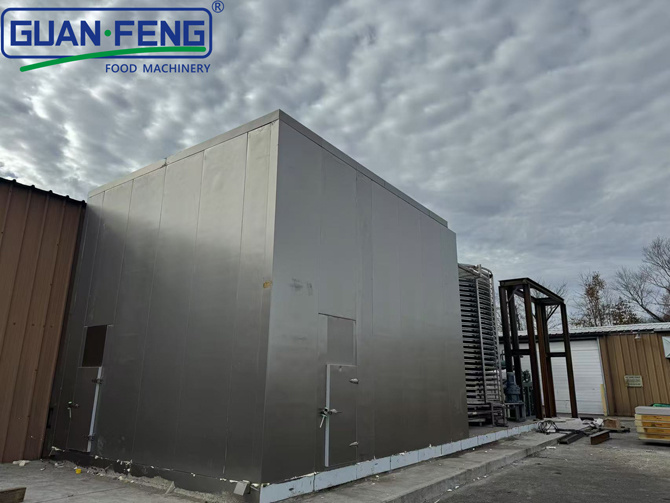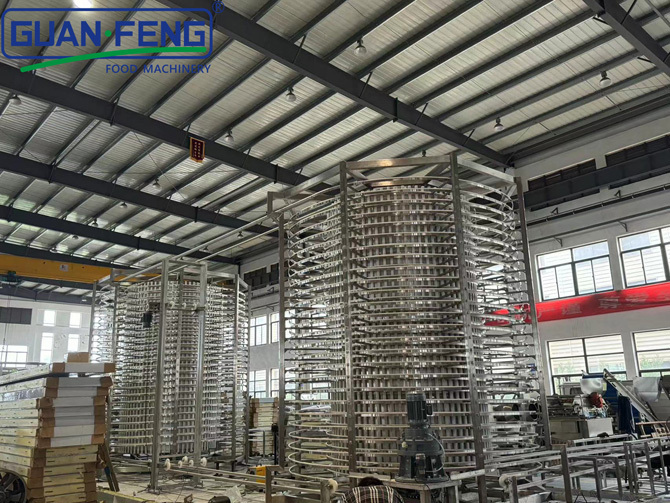BLOG
Focus on hot topics, real-time dynamics
Exploring the Essentials of Laboratory Freeze Dryers for Efficient Sample Preservation
Laboratory freeze dryers, also known as lyophilizers, are specialized instruments designed for the effective preservation of biological and chemical samples. Their primary function is to remove moisture from samples through a process called sublimation, where ice transitions directly from a solid to a gas without passing through a liquid state. This results in the long-term preservation of the samples' structure, composition, and biological activity, making laboratory freeze dryers invaluable in various scientific applications.
One of the most significant advantages of using a laboratory freeze dryer is its ability to maintain the integrity of sensitive materials. Traditional drying methods often compromise the quality of samples due to exposure to heat or oxygen. In contrast, freeze drying occurs at low temperatures, which helps preserve heat-sensitive components such as proteins, enzymes, and nucleic acids. This is particularly essential for pharmaceutical research, biotechnological applications, and food preservation.
When considering a laboratory freeze dryer, several operational factors should be taken into account. The freezing rate, vacuum pressure, and shelf temperature are critical parameters that influence the efficiency of the lyophilization process. Optimizing these variables can lead to improved yield and quality of the dried product. For instance, faster freezing rates generally enhance the final product's integrity by forming smaller ice crystals, which results in better rehydration properties.
Moreover, the choice of a laboratory freeze dryer may depend on the scale of operation—whether it’s for small-scale research or large-scale production. Lab-scale units are typically compact and designed for lower sample volumes, while industrial-scale models can accommodate larger batches and offer more advanced features like automated control systems and integrated monitoring tools.
Maintenance and cleaning are also vital considerations for ensuring the longevity and efficiency of a laboratory freeze dryer. Regular maintenance checks, including routine cleaning of the condenser and vacuum pump, are necessary to prevent contamination and mechanical issues. Furthermore, understanding the manufacturer's guidelines for operational protocols plays a crucial role in achieving optimal performance.
In conclusion, laboratory freeze dryers are pivotal in preserving the quality of sensitive biological and chemical samples. Their efficiency in moisture removal and the preservation of sample integrity makes them essential for researchers in various fields of life sciences. By understanding their operational mechanisms and maintenance requirements, laboratories can significantly enhance their sample preservation practices, ensuring the reliability of their research outcomes. As you explore options for laboratory freeze dryers, consider these essential aspects to make informed decisions that align with your specific needs.
One of the most significant advantages of using a laboratory freeze dryer is its ability to maintain the integrity of sensitive materials. Traditional drying methods often compromise the quality of samples due to exposure to heat or oxygen. In contrast, freeze drying occurs at low temperatures, which helps preserve heat-sensitive components such as proteins, enzymes, and nucleic acids. This is particularly essential for pharmaceutical research, biotechnological applications, and food preservation.
When considering a laboratory freeze dryer, several operational factors should be taken into account. The freezing rate, vacuum pressure, and shelf temperature are critical parameters that influence the efficiency of the lyophilization process. Optimizing these variables can lead to improved yield and quality of the dried product. For instance, faster freezing rates generally enhance the final product's integrity by forming smaller ice crystals, which results in better rehydration properties.
Moreover, the choice of a laboratory freeze dryer may depend on the scale of operation—whether it’s for small-scale research or large-scale production. Lab-scale units are typically compact and designed for lower sample volumes, while industrial-scale models can accommodate larger batches and offer more advanced features like automated control systems and integrated monitoring tools.
Maintenance and cleaning are also vital considerations for ensuring the longevity and efficiency of a laboratory freeze dryer. Regular maintenance checks, including routine cleaning of the condenser and vacuum pump, are necessary to prevent contamination and mechanical issues. Furthermore, understanding the manufacturer's guidelines for operational protocols plays a crucial role in achieving optimal performance.
In conclusion, laboratory freeze dryers are pivotal in preserving the quality of sensitive biological and chemical samples. Their efficiency in moisture removal and the preservation of sample integrity makes them essential for researchers in various fields of life sciences. By understanding their operational mechanisms and maintenance requirements, laboratories can significantly enhance their sample preservation practices, ensuring the reliability of their research outcomes. As you explore options for laboratory freeze dryers, consider these essential aspects to make informed decisions that align with your specific needs.
Hot Tags:
Contact Us
E-mail:
sales@syguanfeng.com
Tel:
+86 15088506234
Address:
South Industrial Park of Dongguan, Shangyu District, Shaoxing City,Zhejiang Province,China.
GUANFENG, your customization experts!
GUANFENG FOOD MACHINERY - leading supplier of integrated food processing solutions
Copyright© 2024 ZHEJIANG GUANFENG FOOD MACHINERY CO.,LTD.










